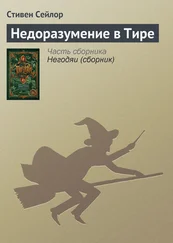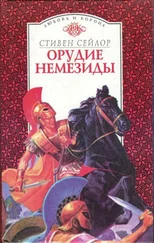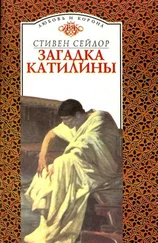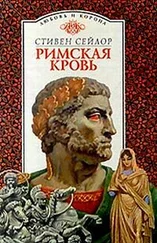Стивен Сейлор - The Throne of Caesar
Здесь есть возможность читать онлайн «Стивен Сейлор - The Throne of Caesar» весь текст электронной книги совершенно бесплатно (целиком полную версию без сокращений). В некоторых случаях можно слушать аудио, скачать через торрент в формате fb2 и присутствует краткое содержание. Год выпуска: 2018, Издательство: St. Martin's Press, Жанр: Исторический детектив, на английском языке. Описание произведения, (предисловие) а так же отзывы посетителей доступны на портале библиотеки ЛибКат.
- Название:The Throne of Caesar
- Автор:
- Издательство:St. Martin's Press
- Жанр:
- Год:2018
- ISBN:нет данных
- Рейтинг книги:5 / 5. Голосов: 1
-
Избранное:Добавить в избранное
- Отзывы:
-
Ваша оценка:
- 100
- 1
- 2
- 3
- 4
- 5
The Throne of Caesar: краткое содержание, описание и аннотация
Предлагаем к чтению аннотацию, описание, краткое содержание или предисловие (зависит от того, что написал сам автор книги «The Throne of Caesar»). Если вы не нашли необходимую информацию о книге — напишите в комментариях, мы постараемся отыскать её.
The Throne of Caesar — читать онлайн бесплатно полную книгу (весь текст) целиком
Ниже представлен текст книги, разбитый по страницам. Система сохранения места последней прочитанной страницы, позволяет с удобством читать онлайн бесплатно книгу «The Throne of Caesar», без необходимости каждый раз заново искать на чём Вы остановились. Поставьте закладку, и сможете в любой момент перейти на страницу, на которой закончили чтение.
Интервал:
Закладка:
We were both silent for a long moment.
Tiro finally spoke. “Well, then. That’s that. But we haven’t seen the last of each other. Far from it. I still attend meetings of the Senate, as secretary to Cicero. No one can take down spoken words as quickly or as accurately as I can, using my shorthand. Others have learned the method, but I’m still the best. I shall be there on the Ides to take down your remarks after Caesar announces your appointment.”
My pulse quickened. “By Hercules, I hadn’t thought of that. I’ll have to say something, won’t I?”
Tiro smiled. “No one will expect an immortal speech. Most new senators say just a few words—honor the ancestors, praise the institution of the Senate, acknowledge friends and allies. Men used to thank the citizens of Rome who elected them to their first magistracy and thus set them on the Course of Honor. These days, they give thanks to Caesar, since voters no longer matter. Then you’ll take the oath that’s now required of every senator, to protect the life of the Dictator with your own.”
“A speech and the oath. With everyone looking at me?”
“I’m afraid so. Pretend they’re not there, that it’s just you and Caesar. He’s the only man in the chamber who matters, anyway. Or picture your fellow senators with animal heads, like those absurd Egyptian deities. I sometimes do that to amuse myself when the speeches are especially long-winded.”
“I can see I’ll be coming to you for advice on a regular basis, Tiro.”
“I shall be honored to give the new senator any assistance I can.”
On an impulse, I stepped forward and embraced him, as I would a son. He returned the embrace, then stepped back.
“You really do look quite splendid in that toga,” he said.
“Thank you. But I’m a bit uncertain about how to carry myself. Especially when I’m in the Senate House.”
“I can help with that, if you wish.”
There was no one whose judgment I trusted more. “I would be very grateful.”
“Walk to the peristyle and back. Yes, like that, but a bit slower, and with your shoulders back.…”
By the time Tiro left—after midday, having been treated to the most lavish luncheon I could put before him—my confidence had returned. Even so, it was with some relief that I took off the toga and put on a simple tunic, suitable for taking a nap in the garden under the mild Martius sun with Bast the cat snuggled beside me.
* * *
Aside from napping, I spent the rest of the day doing very little. It seemed to me that my work was done. I had not only obtained the toga I needed but I also had received expert advice on how to wear it. The investigation assigned to me by Cicero—a task I had never accepted in the first place—had ended with my report, such as it was, to Tiro. The more specific task given to me by Caesar, to look into the affairs of certain men on a list, had reached its end as well. I could give that report to the Dictator in person that night at dinner, if he wished .
Caesar was notorious for mixing business with pleasure at his meals. Meto had told me of a dinner party in Egypt where the Dictator interrupted an anecdote being told by Cleopatra not once but three times to whisper memoranda in Meto’s ear, so that Meto could jot down the ideas while they were still fresh in Caesar’s mind. “But he made sure to laugh quite heartily when the queen finally finished her story,” said Meto. “He’s not ill-mannered. He just has a great deal on his mind. The queen showed not the least displeasure. She’s one of the few people on earth who can even begin to understand how great a burden Caesar bears, every moment of every day and night.”
The day passed without incident and with no more visitors, until, as the sun began to sink behind the rooftops of Rome, Meto arrived, wearing a splendid green tunic with gold embroidery. I had chosen to wear a more understated tunic of very dark blue, with a Greek key pattern in white at the hems. The women of the house made a great fuss over us both, and then Meto led me through the vestibule and out the door.
“Are we going far?” I asked, stepping into the quiet twilit street and seeing a very large, very fine litter. The cushions and curtains were of a sumptuous fabric with a pattern of checkered black and gold. The slaves assigned to carry it were all very large and fine to look at. Half were black-skinned Nubians with tightly curled black hair, and half were Scythians with white complexions and golden hair. They were interspersed so that the bearers themselves formed a sort of black-and-gold-checkered pattern around the litter’s perimeter.
Meto laughed. “We’re not going far at all. We dine at the house of Lepidus, who provided the litter. Somehow Caesar has got it into his head that you’re an old man and shouldn’t be made to walk.”
“I’m only ten years older than Caesar,” I said. Did Caesar think that in ten years he would be a doddering old man? No wonder he was in such a hurry to conquer Parthia. “Surely no task for an old man,” I muttered.
“What did you say, Papa?”
“I said, walking to the house of Lepidus is no task for an old man. Help me into the litter and let’s be off.”
XXVII
I had never met Marcus Aemilius Lepidus, our host. About him I knew only what most Romans would know. He was of patrician birth, about my age, and had been allied with Caesar for a long time. When the civil war began, it was to Lepidus that Caesar entrusted the keeping of Rome while Caesar chased Pompey to Greece. It was Lepidus who put forward the motion that granted Caesar his first, temporary, dictatorship. Later, Caesar dispatched Lepidus to Spain to quell a rebellion there, and was so impressed that Lepidus was granted a triumph when he returned to Rome. While Lepidus’s procession paled compared to the staggering grandeur of Caesar’s own four triumphs the following year, a triumph is never a small affair, and that of Lepidus had been sufficient to impress his name on the minds of even the least attentive citizens. Currently, he was serving as Master of the Horse, essentially a deputy of the Dictator. On Caesar’s departure to Parthia, Lepidus was to leave Rome and become governor of Spain.
Among his family connections was his marriage to a half sister of Marcus Brutus, which united two of the oldest and most distinguished patrician clans in Rome. But Lepidus and Brutus had never been political allies. Lepidus had always been loyal to Caesar .
Lepidus’s house followed the rule of inverse opulence that I had often observed when admitted to the homes of the powerful in Rome: The more austere the exterior—in this case, a very simple white plaster wall fronting the street, and a wooden door without a single ornament, not even a bronze knocker—the more sprawling and opulent the interior. The vestibule, crowded with wax images of ancestors, was the size of my garden; the garden, populated by some notable Greek bronzes, was the size of my house. The dining room, open on one side to the garden but warmed by two massive braziers, was small but exquisitely furnished with three very fine dining couches. On the walls, painted roses bloomed and peacocks displayed shimmering plumage.
The three long couches were arranged at right angles to one another with the open side toward the garden. By custom, no more than two guests would share a couch, each reclining on one elbow, head to head. With only three couches for six guests, the dinner was not to be a grand affair, where a simple guest like myself could recede into the background, but something more like an old-fashioned Greek symposium. There would be a host, a guest of honor to his right on the center couch, and two pairs of guests on the couches to either side, with food and entertainment arriving from the open side facing the garden.
Читать дальшеИнтервал:
Закладка:
Похожие книги на «The Throne of Caesar»
Представляем Вашему вниманию похожие книги на «The Throne of Caesar» списком для выбора. Мы отобрали схожую по названию и смыслу литературу в надежде предоставить читателям больше вариантов отыскать новые, интересные, ещё непрочитанные произведения.
Обсуждение, отзывы о книге «The Throne of Caesar» и просто собственные мнения читателей. Оставьте ваши комментарии, напишите, что Вы думаете о произведении, его смысле или главных героях. Укажите что конкретно понравилось, а что нет, и почему Вы так считаете.












